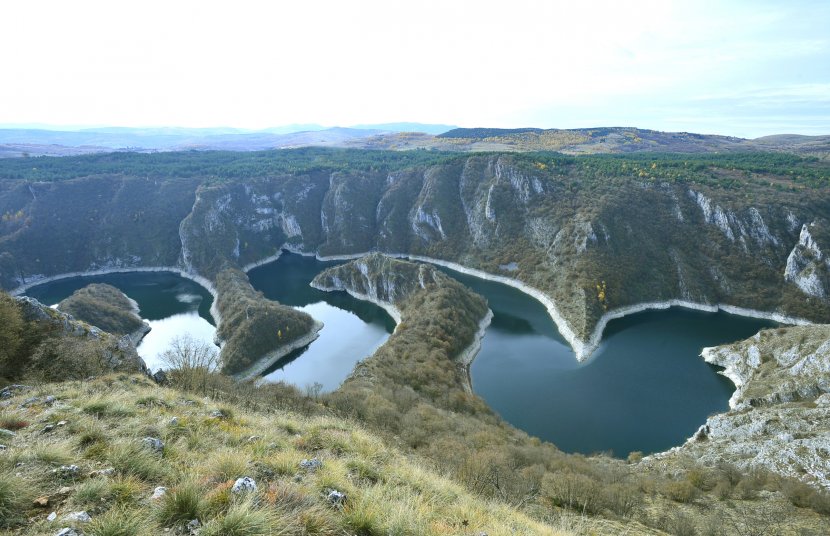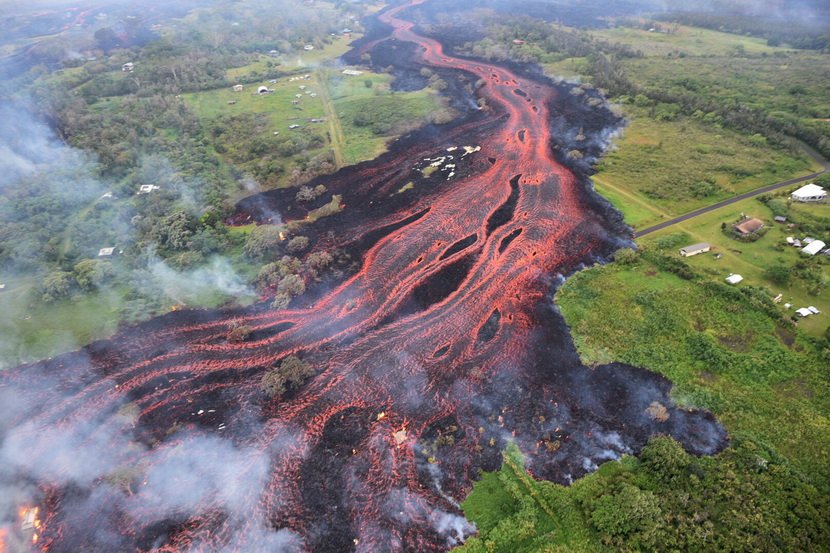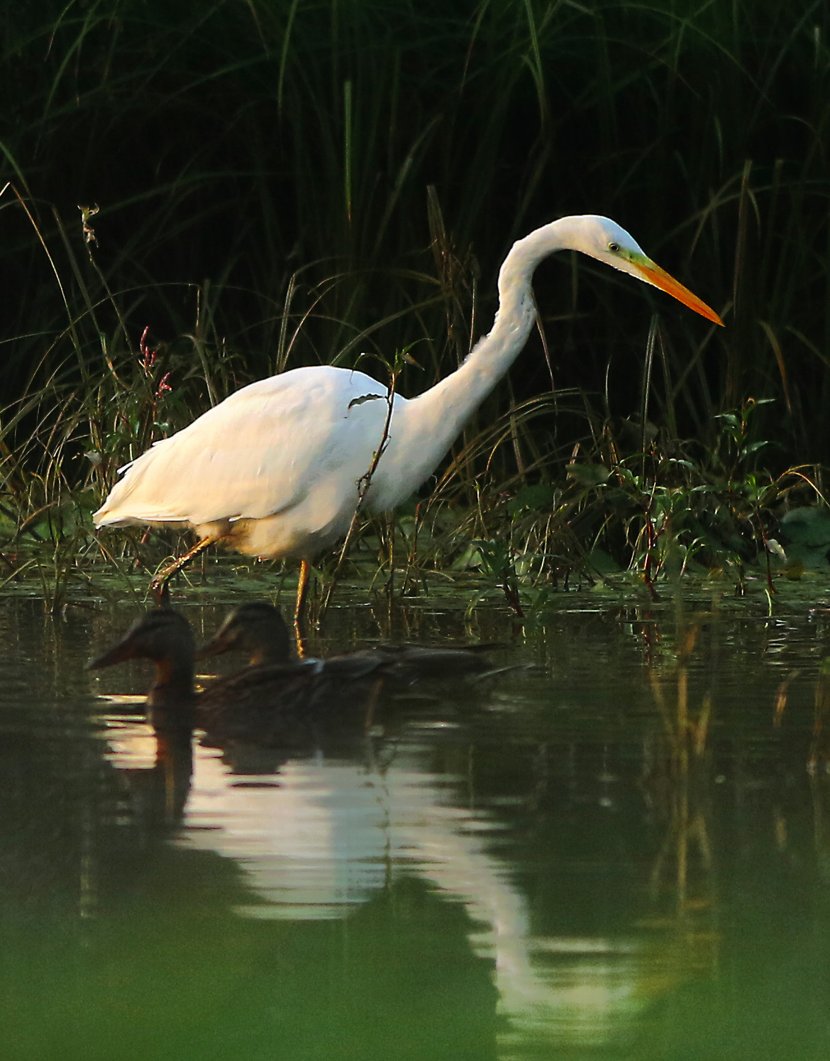What kind of a pact did the Serbs sign with nature? The earth is devastated by earthquakes, storms, and disasters, and cataclysm is bypassing us
When we add everything up, if we made any good deal - that would be the one with the nature of Serbia. It has spared us of its wrath, beautiful and tame, and the history somehow brought us to a very convenient place.
We don't have the sea in the heart of Balkans. We have to afford it with a suitcase and a passport. However, we have good sides, we have accidentally avoided the dangers of the power of water. A fairly inaccessible dream for many, Hawaii, but only for a summer vacation - when a volcano is not active.
Hippos are also cute, but it is not wise to stay in their vicinity, they are one of the deadliest animals on the planet.
Many childhoods were marked by winter magic during the winter breaks and the mothers who couldn't keep us indoors. However, a question emerges if anyone is willing to move to Siberia.
There are so many examples that it is impossible to measure them with some distant parts of the world: the incomparable Uvac, the waterfalls of Stara Planina... Of course, we added points for the beauties we have, and not just for the terrors that we don't.

These are just some of the reasons we should be grateful and to protect our nature even more, so we won't have to pay for high costs in the future. Let say that again as the folks do - not to jinx it.
EXTREME TEMPERATURES
The world: The coldest inhabited place is the village Oymyakon, in far eastern part of Siberia, where the lowest temperature was recorded -71.2 C, and the California desert, the Valley of Death, is thought to be the hottest part of the planet. It was recorded 70 C in Iran, in a place called Dasht-e Lut.
Serbia: Beads of sweat start coming when we read the highest temperature ever recorded in our country. On July 24, 2007, in Smederevska Palanka: 44.9 degrees, according to the data from Republic Hydrometeorological Service of Serbia. They immediately dry up when we think of the temperatures in Iran. The lowest temperature of -39 degrees was recorded on January 26, 2006, in Karajukica Bunari, it is terrible just to imagine it, but we wouldn't go over the half of the most extreme recorded temperature in inhabited places. The moderate-continental climate toughens you much less.
We have avoided great forest fires this summer, and the news was full of them in Portugal, Germany, even in Montenegro...
BLOODTHIRSTY BEASTS, DANGEROUS SPECIES
The world: Crocodiles, poison snakes, big cats, sharks, hippos...
Serbia: Bear, wolf, mosquito.
The last one is considered to be a disease carrier and is actually the most lethal on the planet. It carries the virus of the Western Nile, but this most dangerous animal in Europe didn't cause the damage of the same proportions as it did in the countries of the Third World.

CLOSENESS AND INTIMACY
The world: If you watch at least one of the US TV shows, you will notice these two things: They don't get out of the cars and they don't go off from social networks, where they, ironically, mostly strip. They would rarely get anywhere on foot. They would reach their workplace and due to the distance and overpopulation, they would spend half of the day in the car. The other parts of the country are pretty scattered, and the distances in the suburbs with houses are even worse, so you need a car for two streets.

Meetings of potential spouse and one night stands almost completely moved to social networks.
Serbia: Our entire country doesn't have the same amount of people as some metropolis does. But, while you walk to your friend, on the way you can meet a future boyfriend or a girlfriend, a friend from elementary school, you can talk with your favorite cashier. We are not immune to social networks, but the percentages are still small devoted to these kinds of acquaintances. We have a reputation that we are lovers of good nightlife and sociability.
NATURAL DISASTERS
The world: The beautiful nature of Hawaii has its dark side. The tourist oasis is shaken by an active volcano, and the hot lava reshaped the landscape.

In the past few months, the ruthless side of nature took away lives on enormous areas. Hurricane Florence in the US, the storm in Ireland, a tornado tore trees from roots in Canada, and Indonesia, which has daily troubles with devastating earthquakes, was struck by a tsunami this week. They wonder each day if they will die.
Serbia: "Farmers don't care if their crops are destroyed by hail, specific for our area, or by a tornado", one of the arguments why it's not easy for us. However, if there was no help for tomato or for blackberry, the living beings hide when hail strikes, and later on they help out, while there are small chances for that in the areas struck by earthquakes, no chances in areas with lava, and the only option is a complete evacuation. The greatest natural disaster in recent years was caused by untamed rivers. The saddest was during the floods in May 2014, when 33 people lost their lives.

HOW DID WE "TAKE OUR PLACE"
A historian Nemanja Jovanovic described briefly the reasons for the immigration of Slovenes.
- There are no historical sources that tell us precisely why Slovenes moved and why the part of that large group chose our Balkans. No one wrote, "let's go to the south, it's warm and fertile there". Consequently, the further conclusion of the historians is derived from indirect sources (records of medieval historians from Byzantium and archaeological findings). It is believed that the most probable trigger of the Slovenes' migration was the pressure of the steppe peoples (Huns, Avars ...) who were very aggressive to penetrate Eastern and Central Europe. As the Germans began to flee to the south and west, so did the Slovenes after them because no tribe wanted to suffer from their rather cruel power - says Jovanovic.
Thus, one part of the Slovenes headed towards the south, most likely because it was known that the south was fertile and more suitable for life, he continues.
- However, on the Danube they came across Byzantium border, they were between a rock and a hard place in a way. Nomads pushed them on one side, on the other Byzantium stopped them. That is when Slovenes started their looting quests and invasion to the south of Balkans, arriving all the way to Peloponnese. A part of these invasions served only as robberies, and part, however, had the aim to permanently settle on that territory - he adds and says that there are several probable reasons:
1. A part of those lands was also fertile and suitable for life, and the former residents partially abandoned it due to many centuries of attacks and robberies of the tribes from the other side of the Danube.

2. Again, a part of those Slovenes still fled from the oppression of those steppe peoples. Perhaps that they will be safer in a great empire like Byzantium, perhaps it seemed that if they go far enough from steppe peoples they won't hunt them anymore. It is even possible that they searched for safety in mountain areas that provided protection from the cavalry from the steppe.
3. The wealth they saw in Byzantium, so they thought if they settled on the territory of that empire they could get their own piece. Of course, it should be taken into consideration that a part of Slovenes cooperated with the nomads, they were a part of their invasions, for example, together with Avars they laid siege on Constantinople.
- Basically, Slovenes chose the Balkans while searching for a better and safer life for themselves. Did they get it is an entirely different question, concludes Jovanovic.
(Telegraf.co.uk / M.Ro.)
Video: Vučić: "Ovo je 5 zahteva od kojih nikada nećemo odustati"
Telegraf.rs zadržava sva prava nad sadržajem. Za preuzimanje sadržaja pogledajte uputstva na stranici Uslovi korišćenja.

